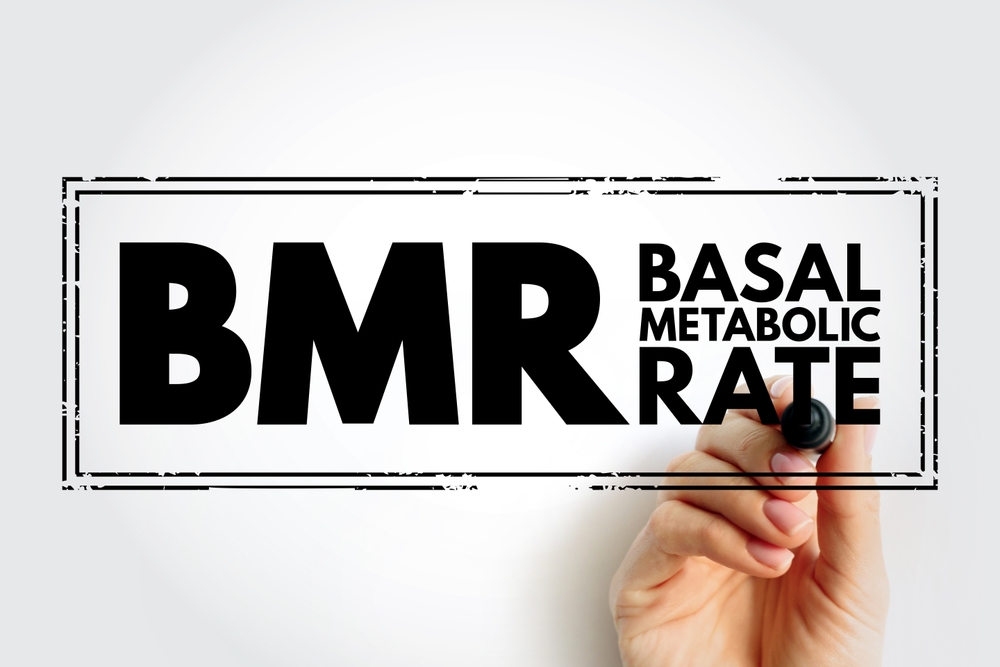What Should My Basal Metabolic Rate Be?
When it comes to weight management, understanding your body’s energy expenditure is crucial. One key component of this is the Basal Metabolic Rate (BMR). But what exactly is BMR, and why does it matter? This article aims to demystify BMR, explain its significance, and provide insights on how to leverage it for effective weight management.
What Is Basal Metabolic Rate?
Basal Metabolic Rate (BMR) is the number of calories your body needs to maintain basic physiological functions at rest. These functions include breathing, circulating blood, regulating body temperature, cell production, nutrient processing, and brain and nerve function. In other words, BMR represents the energy required to keep your body functioning while you are not physically active.
Think of BMR as the energy cost of keeping the lights on in your body. Just like a car needs fuel even when idling, your body requires a certain amount of energy to sustain vital processes.
How is BMR Calculated?
Calculating BMR involves considering factors such as age, sex, weight, and height. While there are specific formulas that experts use to determine BMR precisely, you can get a rough estimate using some general principles.
Simplified Calculation Method:
Age: Younger individuals generally have higher BMRs because their bodies are more metabolically active.
Sex: Men typically have a higher BMR than women due to having more muscle mass.
Weight: Heavier individuals need more energy to maintain their body functions, resulting in a higher BMR.
Height: Taller people usually have a higher BMR because they have a larger body surface area.
To get a rough estimate of your BMR, you can use online BMR calculators where you input your age, sex, weight, and height. These calculators apply the complex formulas to provide you with a personalized BMR.
Why Does BMR Matter?
Understanding your BMR is essential for several reasons, especially when it comes to weight management:
- Caloric Needs
Knowing your BMR helps you determine your daily caloric needs. To maintain your current weight, you need to consume the same number of calories your body burns throughout the day. If your goal is to lose weight, you’ll need to consume fewer calories than your body requires, creating a caloric deficit. Conversely, to gain weight, you’ll need to consume more calories than your body burns.
- Weight Loss and Gain
BMR is a crucial factor in designing an effective weight loss or gain plan. By understanding your BMR, you can tailor your diet and exercise regimen to meet your specific needs. For instance, if you have a low BMR, you might need to be more mindful of your caloric intake and include more physical activity in your routine to achieve weight loss.
- Metabolic Health
Your BMR provides insights into your metabolic health. A higher BMR generally indicates a more efficient metabolism, while a lower BMR might suggest a slower metabolic rate. Factors such as muscle mass, thyroid function, and overall health can influence your BMR. Monitoring changes in your BMR can help identify potential health issues and guide interventions.
Factors Influencing BMR
Several factors can influence your BMR, including:
- Age
BMR typically decreases with age. As we get older, we tend to lose muscle mass and gain fat, which can lower our metabolic rate. This is why many people find it harder to maintain or lose weight as they age.
- Sex
Men generally have a higher BMR than women due to having more muscle mass. Muscle tissue burns more calories than fat tissue, even at rest.
- Genetics
Genetic factors play a significant role in determining BMR. Some people are naturally predisposed to have a higher or lower BMR.
- Body Composition
The more muscle mass you have, the higher your BMR. Muscle tissue is metabolically active and requires more energy to maintain than fat tissue.
- Hormones
Hormones such as thyroid hormones, insulin, and cortisol can significantly impact BMR. Thyroid hormones, in particular, are key regulators of metabolic rate.
- Health Conditions
Certain health conditions, such as hypothyroidism or hyperthyroidism, can affect BMR. Hypothyroidism can lower BMR, while hyperthyroidism can increase it.
- Diet
What you eat can influence your BMR. Diet-induced thermogenesis (DIT) refers to the increase in metabolic rate after eating. Protein-rich foods tend to increase DIT more than carbohydrates or fats.
- Environmental Temperature
Exposure to extreme temperatures can impact BMR. Cold environments can increase BMR as the body works harder to maintain its temperature.
Common Misconceptions About BMR
Several misconceptions about BMR can lead to confusion and hinder weight management efforts. Let’s address some of these myths:
- Myth: BMR Is Fixed
BMR is not a fixed number. It can change based on various factors such as age, weight, muscle mass, and health status. Regular monitoring and adjustments are essential for effective weight management.
- Myth: Only Exercise Matters
While physical activity is important, it’s not the only factor that influences BMR. Diet, sleep, stress levels, and overall health also play significant roles.
- Myth: Starvation Diets Increase BMR
Severely restricting calories can actually lower your BMR. When you consume too few calories, your body enters a state of conservation, slowing down your metabolism to preserve energy.
- Myth: Supplements Can Boost BMR
While some supplements claim to boost metabolism, their effects are often minimal and short-lived. The most effective way to influence your BMR is through a balanced diet, regular exercise, and healthy lifestyle habits.
The Role of Redline Health and Wellness
At Redline Health and Wellness in Burleson, TX, we specialize in medical weight loss and understand the critical role BMR plays in your journey towards a healthier weight. Our team of experts is dedicated to helping you achieve your weight management goals through personalized plans that take into account your unique BMR and overall health.
Personalized Assessments
We begin with a comprehensive assessment of your metabolic rate, body composition, and health status. This helps us create a tailored plan that aligns with your specific needs and goals.
Nutritional Guidance
Our nutritionists provide expert guidance on how to fuel your body effectively, ensuring you get the right balance of nutrients to support your metabolism and overall health.
Customized Exercise Plans
We design exercise plans that not only help you burn calories but also build muscle mass to boost your BMR. Our fitness programs are tailored to your fitness level and preferences, making it easier for you to stay motivated and achieve your goals.
Ongoing Support
Weight management is a journey, and we’re here to support you every step of the way. Our team provides regular check-ins, progress tracking, and adjustments to your plan as needed to ensure you stay on track and reach your desired outcomes.
Conclusion
Understanding your (BMR) Basal Metabolic Rate is a key component of effective weight management. By knowing how many calories your body requires at rest, you can make informed decisions about your diet and exercise routine to achieve your weight goals. Remember, various factors influence BMR, and regular monitoring and adjustments are crucial.
At Redline Health and Wellness, we’re committed to helping you understand and leverage your BMR for optimal health and weight management. Our personalized approach ensures that you get the support and guidance you need to succeed on your journey. So, why does BMR matter? Because it’s the foundation upon which successful weight management is built.




